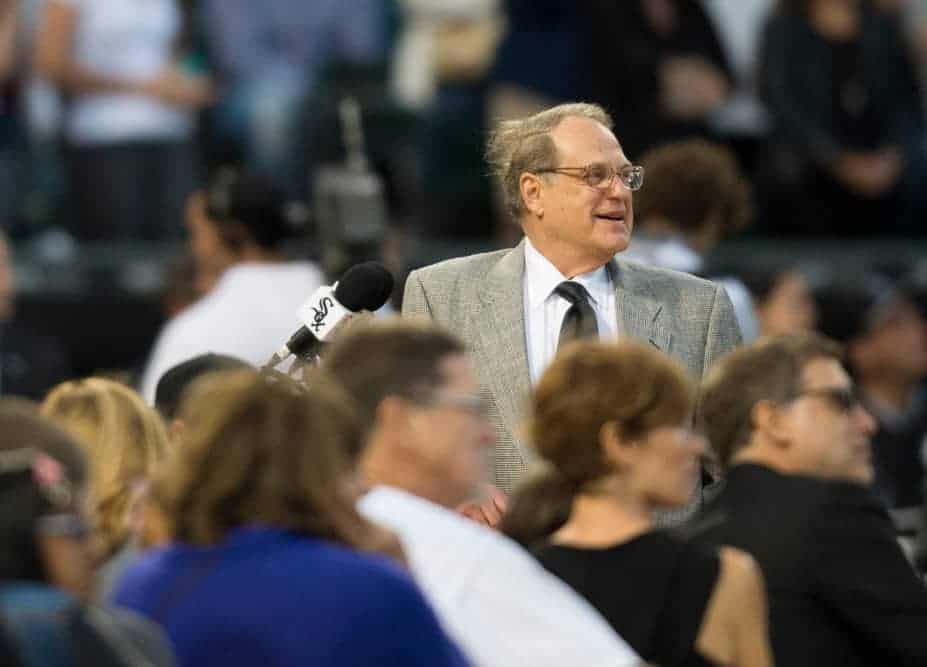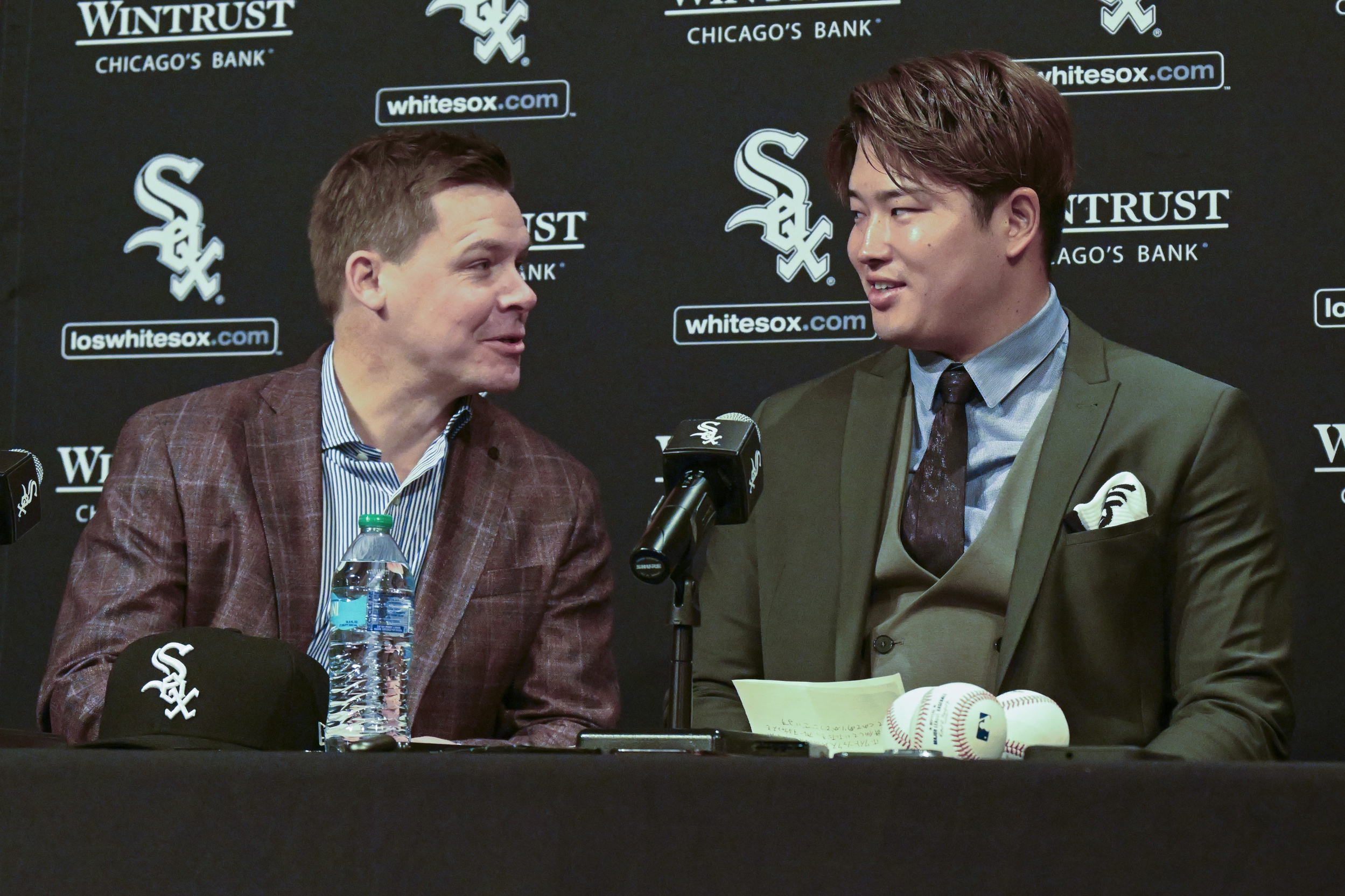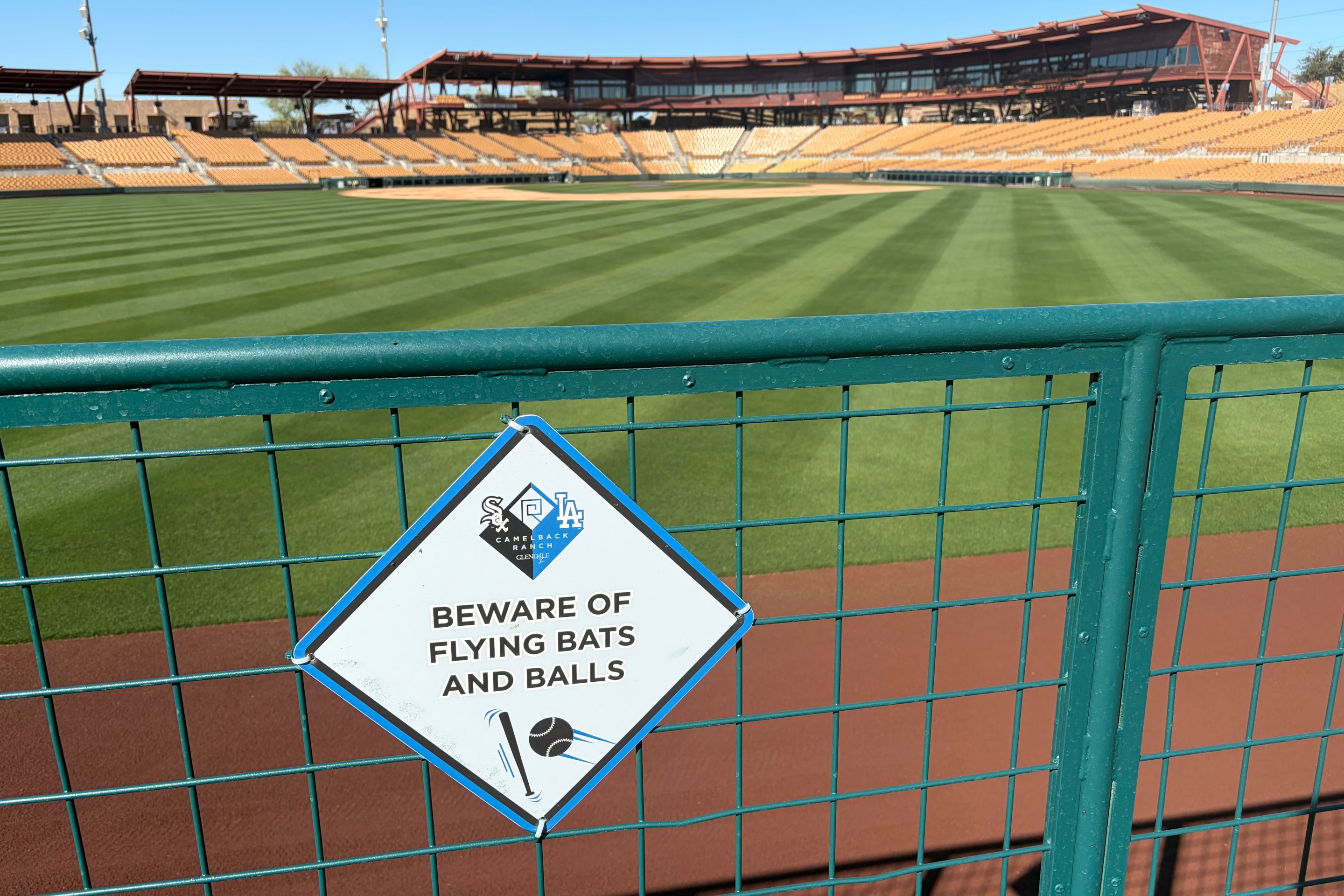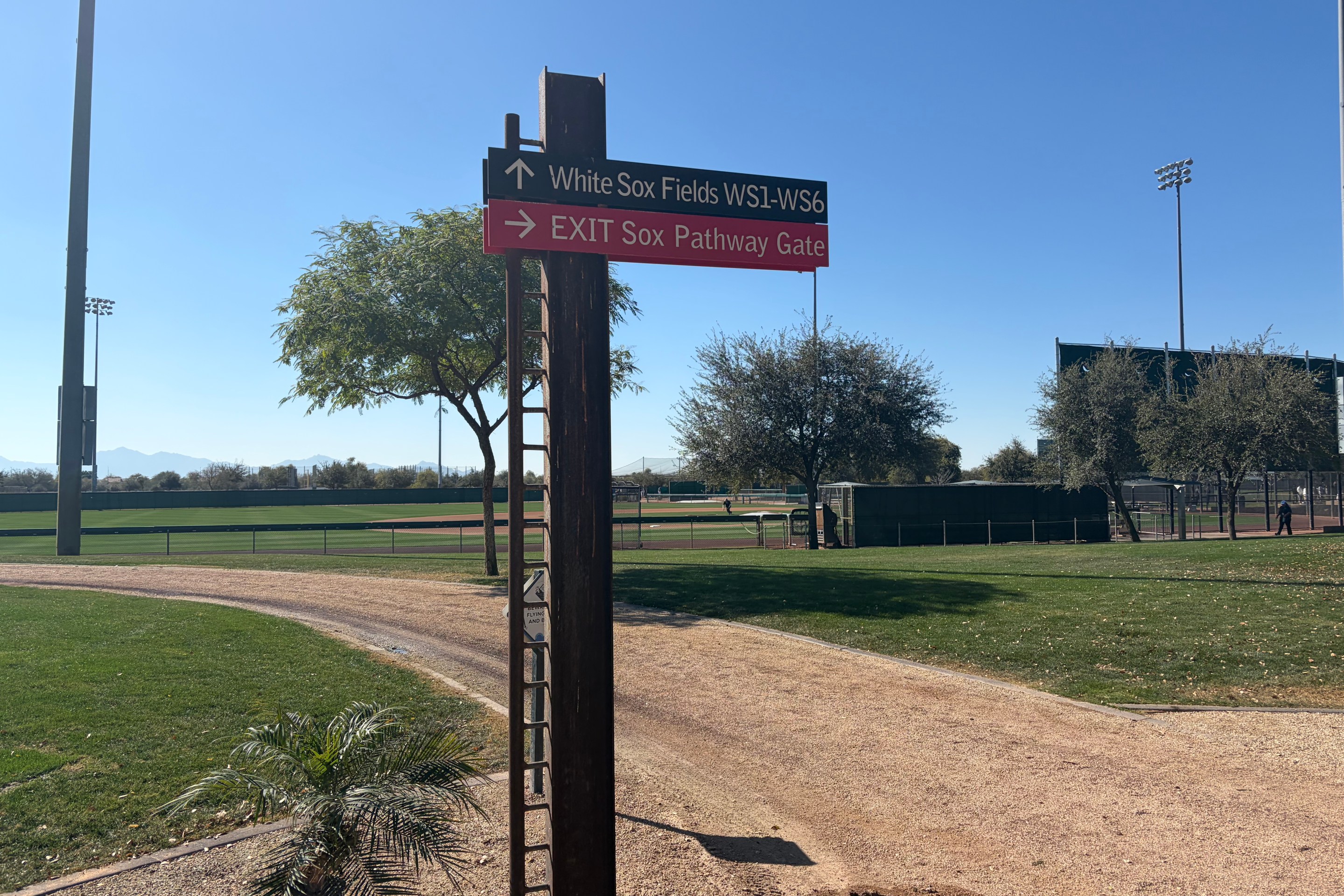Like a sizable chunk of the sports-starved world, I watched the first two installments of ESPN's "The Last Dance" series on the 1997-98 Chicago Bulls on Sunday night, and would've easily sat for a third.
I can't yet tell if it's a good documentary, because I haven't watched many of ESPN's offerings, and I'm naturally invested in the story enough to make all the details worth waiting for, in whichever order they appear. The jumping around on the timeline seemed to annoy those who aren't partial to those teams, and maybe that arrangement is too cute for cohesion.
I can tell that it's a good refresher course on the power struggles I couldn't quite grasp as a teenager. Said struggles are easier to comprehend now, especially after writing about a different Jerry Reinsdorf-led team for the last 14 years. The confusing priorities and tangled power structures have hampered the White Sox since their own shorter-lived championship peak.
The series opens with the rift between Jerry Krause and Phil Jackson. Krause seemed eager to blow up the Bulls in order to display his power and acumen, and he would've done it a year earlier if given the chance. You have to trust the power of the Krause's grudges, because 20-plus years and so much losing later, there isn't another explanation for wanting to win fewer championships with a global icon when all the necessary personnel exist.
And two episodes in, it isn't entirely clear why Reinsdorf was OK with letting Krause dictate terms that Reinsdorf says he was inclined to oppose from a competitive perspective. Reinsdorf showed he had the power to override Krause by keeping Jackson around for the last season, but he seemed to pretend as if that sapped his powers of authority.
A disconnect remains. Bulls author Jack M. Silverstein wrote in his newsletter about Sam Smith's contention that Jordan wouldn't have quit because of a GM he didn't need to respect:
My problem with that analysis is that Reinsdorf did not position himself as the boss to Jordan, Jackson and Pippen. He positioned himself as the owner and positioned Krause as the boss. What’s interesting to me is that as a member of the White Sox organization in 1995, Jordan again found himself in a power struggle with a Reinsdorf-employed general manager, Ron Schueler, and again held the GM accountable for the animus, rather than the actual boss.
In both cases, Reinsdorf seems to have built a dynamic where the GM becomes the bad guy while he, Reinsdorf, evades the deepest criticisms. Even still, Reinsdorf has not been able to shield himself from the broader question of whether the Bulls were prematurely broken up, and what role he played in it.
So far in the documentary, Reinsdorf is content to shrug at the strife and chalk it up to strong and strange personalities, deflecting larger reflection to Jerry Krause, who died in 2017 and thus can't defend the decisions. The biggest backlash on Twitter stemmed from the documentary's framing of Scottie Pippen's terrible long-term contract against the terrible hardships his family endured. Reinsdorf came across as unsympathetic in his response to Pippen's unhappiness, saying he advised Pippen not to sign his career away for seven years, while acting like he didn't have the power to revisit it, or offer an extension more in line with his value.
ESPN's Bomani Jones spent the morning defending the team, or at least saying Pippen was hellbent on selling himself short and shouldn't have expected a bailout. Supposedly Pippen's own agent advised him against the deal. Pippen went on to wage financial battles in the decades to follow, including the disastrous Air Pip saga, and the fraud committed by his former financial adviser, so perhaps he was impervious to better advice.
But given all the scar tissue in the decades after management made no effort to keep those Bulls together, I'd be surprised if Reinsdorf manages to win over public sentiment over the course of the documentary. He seems to recognize the value in not talking, and directing issues toward Krause keeps him from overextending himself.
Once an explosive quote in the 1990s -- I'd recently revisited articles where he likened MLBPA head Don Fehr to Jim Jones -- Reinsdorf now mostly only speaks on the record to say nice things about his favorites. It's probably because he can't help himself if he allows himself the opportunity to freestyle. The attempt to thwart Rob Manfred's ascent looks increasingly short-sighted as Manfred continues to shape the league toward Reinsdorf's long-term wishes, the petty parting shot at Tom Thibodeau on Bulls letterhead never should have left his desk drawer, and there's this response to Marvin Miller's impending induction to the Hall of Fame:
Miller and Fehr were demonized by some owners. Others admired Miller's abilities and accomplishments while criticizing his impact on the sport.
"I don't have anything to say," Chicago White Sox owner Jerry Reinsdorf said tersely in the hotel lobby of the winter meetings.
Because Reinsdorf says so little, one has to pay attention for what he doesn't say, and that won't satisfy, either. The stoic disregard for Pippen's complaints reminded a lot of people of Frank Thomas' "diminishing skills clause," which also made a personnel situation unnecessarily bleak. I first thought of his glib jab at Joe Crede, who was advised against signing an extension with the White Sox, and probably lost a few million in the process.
It'd probably be easier to understand if Reinsdorf were some kind of cartoon villain, but he's not so easy to pin down. His employees love him, and he's exceptionally generous to some players, with Jose Abreu being the latest reminder. It's just a problem when his favorites aren't your favorites, and his favorites tend to agree with his worldview. If they help impose it, so much the better. Does it yield dividends for fans? That question wasn't on the agenda.
I always keep in mind a quote from a 1995 Cigar Aficionado profile of Reinsdorf: "Throughout the fall and winter, he was driven by the dream: to create a World Series winner in a business climate that made sense to him."
Silverstein points out a couple quotes from multiple decades that echo a similar theme. one from Jackson in a Jordan biography ...
“He’s loyal, he’s honest, he’s truthful. But there’s something about going in and trying to get the best every time. Winning the deal. When it comes to money, to win the deal."
.. and one from Reinsdorf in the documentary:
“I asked around the league, and everybody I talked to said, ‘Don’t touch the guy’ — he had a way of alienating people,” Reinsdorf explains in The Last Dance about his decision to hire Krause as GM in 1985. “But I wasn’t hiring somebody to win a personality contest. I wanted somebody who truly believed in building a team the way I wanted to. And Krause was the guy.”
Like I said two years ago, I've been wary of the idea that the timing of this White Sox rebuild is a little too reliant on Reinsdorf prioritizing winning ballgames over making points. He was willing to truncate a previous White Sox rise in hopes of whomping the union, and there's not a whole lot of new material suggesting he'll shift to "fan-first" as the CBA approaches its expiration date following the 2021 season. We've mostly seen Reinsdorf tacitly supporting ineffective management until the principal parties beg to be relieved of their duties, even if the standings and stories demanded bigger changes years earlier. Infighting plagued both his franchises over the last decade, and time and time again Reinsdorf arrived with the fire extinguisher only after investigators had combed the scene for dental records.
The good news is that Rick Hahn has diplomacy in his arsenal, unlike Krause, Gar Forman, and, to a lesser extent, Kenny Williams. He's been just as businesslike as the others in terms of suppressing service time until prospects come to the table, but the team-friendly extensions he's negotiated lack that same ruthless quality that poisoned the Pippen dialogue, as well as Thomas' post-peak years in Chicago. Chris Sale bristled at a number of things during his time with the White Sox, but pay wasn't one of them. All current members of the White Sox seem to be pleased with the picture.
Hahn's nicely arranged the cost-controlled core, but he has less control over the proceedings from here. The pandemic prevents us from knowing if he did a better job at supplementing this one in 2020, and even if he learned from his mistakes with the first rebuild, the expiring CBA means Reinsdorf could have more to say about what the organization can actualize in 2021 and beyond. Those following the White Sox are at the mercy of him picking the right points to drive home and the better thing to win.
(Photo by Paul Bergstrom/Icon Sportswire)






